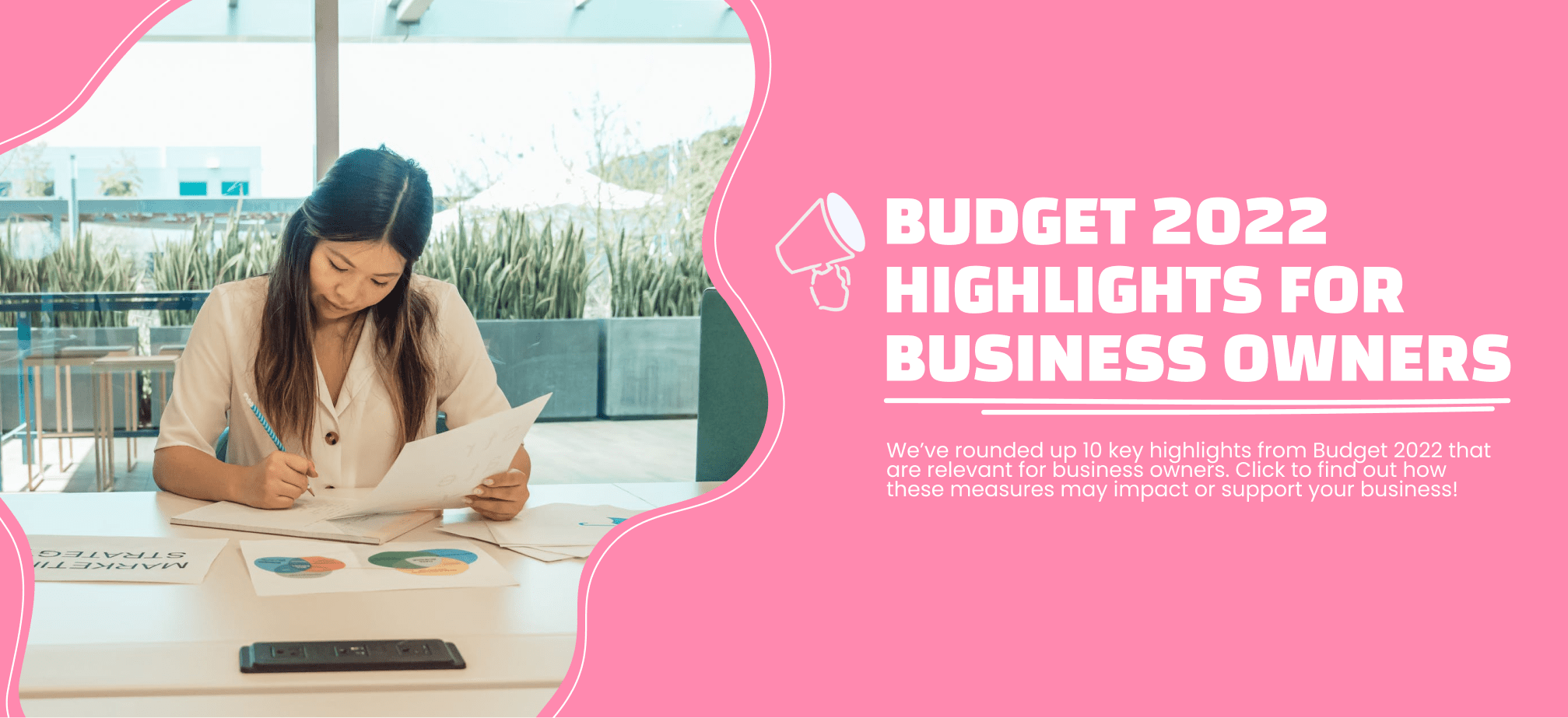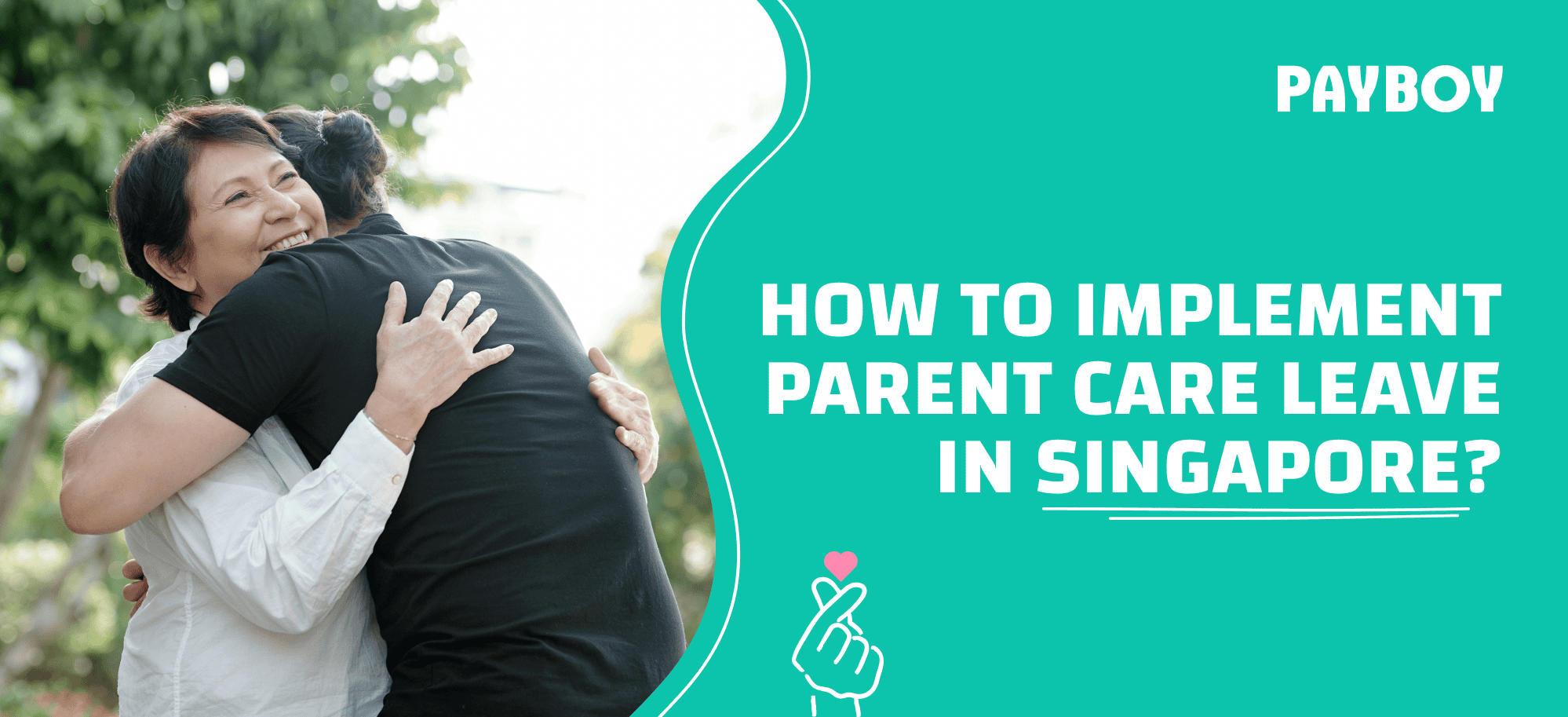We’ve rounded up 10 key highlights from Budget 2022 that are relevant for business owners. Read on to see how these measures may impact or support your business!
Budget 2022 highlight #1: SMEs in eligible sectors can receive up to $10,000 as part of Small Business Recovery Grant
The Small Business Recovery Grant (SBRG) provides one-time cash assistance to SMEs in sectors that have been hardest hit by COVID-19 regulations in the past year, such as food and beverage, retail, tourism, and hospitality.
Eligible companies will receive S$1,000 for each local employee with mandatory CPF contributions in the period from 1 November 2021 to 31 December 2021, up to a maximum of S$10,000 per firm.
Sole proprietors or partnerships will also receive a flat payout of $1,000, provided that these conditions are met:
- Run by at least one local business owner
- Do not hire any local employees
- Net trade income filled with IRAS in the Year of Assessment 2021 is not more than S$100,000
To find out more about other grants that may be helpful for your business, read more on our SME grants and scheme guide for business owners.
Budget 2022 highlight #2: Jobs Growth Incentive (JGI) is extended to Sep 2022
The Jobs Growth Incentive (JGI) was first introduced in August 2020 to support employers to expand local hiring so as to create good and long-term jobs for locals. As announced during Budget 2022, the JGI has been extended by six months to Sep 2022 and this extension will only cover mature workers aged 40 and above who have not been employed for six months or more, persons with disabilities, and ex-offenders.
Budget 2022 highlight #3: SMEs can receive up to $10,000 credits under SkillsFuture Enterprise Credit (SFEC)
To encourage employers to engage in enterprise and/or workforce transformation, eligible employers will get a one-time S$10,000 credit to cover up to 90% of out-of-pocket spending on qualifying costs for supportable programmes through the Skills Future Enterprise Credit (SFEC)
There is no need to apply for SFEC as credits will be automatically used on the following programmes which you have applied for:
- Enterprise Transformation:
- Workforce Transformation:
Budget 2022 highlight #4: Financing schemes for businesses has been extended
To help businesses ease their cashflow concerns, several financing schemes have been extended.
Budget 2022 highlight #5: Productivity Solutions Grant extended over the next 4 years
Additional $600 million will be set aside over the next 4 years for the Productivity Solutions Grant (PSG), to encourage more SME owners to increase productivity through implementation of digital and automation solutions, as well as to help subsidise accounting and point of sale solutions to support the upcoming GST adjustments in 2023.
Some IT solutions covered by PSG include:
- Human Resource Management system (HRMS)
- Customer Relationship Management (CRM)
- Accounting Management
- Inventory Management
- E-Commerce - Online (B2C)
In fact, Payboy is a PSG-approved cloud-based human resource management system that offers one-stop solution to SME’s HR needs such as payroll processing, leave management, attendance tracking, shift scheduling and more. Reach out to us if you are keen to explore using Payboy!
Budget 2022 highlight #6: Progressive Wage Credit Scheme extended to more sectors
The Progressive Wage Model (PWM) was developed to uplift lower-wage workers in the cleaning, security, landscaping and lift and escalator maintenance by mapping out a clear career pathway for their wages, with training to improve productivity and service quality. The PWM will be extended to sectors such as retail (from 1 Sep 2022), followed by food services (1 Mar 2023) and waste management (from 2023), and will also be introduced to specific occupations across all sectors from 1 Mar 2023, such as administrative assistants and drivers.
From 1 Sep 2022 onwards, all firms will have to pay at least the minimum salary salary to all its workers before it can hire any foreigners. The current Local Qualifying Salary is set at S$1,400, which may be adjusted from time to time.
The government will also take the lead and purchase from businesses that have been accredited with the PW Mark, which acknowledges companies who are paying their workers progressive wages.
Budget 2022 highlight #7: CPF Transition Offset to support higher CPF Contribution Rates for Senior Workers in 2023
The employer and employee CPF contribution rates for employees aged above 55 to 70 will be further increased by 1% each from 1 January 2023 to strengthen the senior workers’ retirement adequacy.
The CPF Transition Offset will help to cover half of the increase in employer CPF contribution rates in 2023 to alleviate the rise in business costs due to this CPF increase for senior workers.
Read more about CPF contributions in our CPF Guide for Employers.
Budget 2022 highlight #8: Increased salary threshold for Employment Pass and S Pass
From Sep 2022 (for new applications) and Sep 2023 (for renewal applications), the minimum salary for Employment Pass holders will increase from $4,500 to $5,000 a month (in general), and $5,500 a month (for financial services).
Likewise for S Pass holders, the minimum salary will increase from $2,500 to $3,000 a month (in general), and $3,500 a month (for financial services).
Budget 2022 highlight #9: Lower dependency ratio ceiling for Work Permits
For the construction and process sectors, the ratio of work permit holders that a company can employ will be reduced from 1:7 (current ratio) to 1:5. In terms of percentage, this means that the maximum number of work permit holders in the construction and process sectors will be reduced from 87.5% to 83.3%. These changes will take place from 1 Jan 2024.
Budget 2022 highlight #10: Increased GST rates from 2023
GST will increase from 7% to 8% from 1 Jan 2023, before increasing to 9% from 1 Jan 2024 onwards.
To cushion the impact of the GST increase, SME owners can apply for subsidised accounting and point of sale solutions under the Productivity Solutions Grant.
References for Budget 2022 updates:
https://www.mof.gov.sg/docs/librariesprovider3/budget2022/download/pdf/fy2022_businesses_infographic.pdf
https://www.mof.gov.sg/singaporebudget/resources/budget-booklet/budget-booklet-english
https://dollarsandsense.sg/business/singapore-budget-2022-things-business-owners-need-to-know/






















